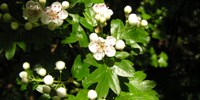The position of Postdoctoral Scientist is available in my group to lead research on the Wellcome Trust and Royal Society
funded project Statistical Methods for Whole Genome Phenotype Mapping in
Bacterial Populations.
Bacteria cause disease throughout the
world. Different strains vary in disease severity, but the genetic
variants responsible remain largely undiscovered. Recent breakthroughs
in whole genome sequencing provide new opportunities for discovery, but
the lack of statistical analysis tools tailored to the special structure
of bacterial populations presents a roadblock. The goal of the project
is to develop an analysis framework for mapping genes underlying
naturally variable traits in bacterial populations. Focusing on the
hospital-associated pathogens Staphylococcus aureus and Clostridium
difficile, we will investigate the role of bacterial variants on disease
severity.
The role of the Postdoctoral Scientist is to develop
novel statistical methods for analysing genotype-phenotype associations
in bacteria at the whole genome level. The successful candidate will
write software implementing the statistical methods and apply them to
design and carry out investigations into the genetic basis of virulence
in natural populations of bacterial pathogens. The ideal candidate would
be a recently graduating PhD student with experience of statistical
genetics and computer programming, with evidence of publicly released
software. Experience of population genetics or microbiology would be
advantageous but is not essential.
The post is available immediately, and is available for up to 3 years in the first instance. For more details on this position, including salary, job description, selection criteria and how to apply, please see the University of Oxford recruitment page.
Applications
for this vacancy are to be made online. The closing date is 12.00 noon on Monday 4 November 2013. Applicants will be asked to upload a CV and a supporting statement as part of the
online application. For informal enquiries, please email me. More information about the group's research is available here.
Friday 20 September 2013
Tuesday 17 September 2013
Sir Henry Dale Fellowship
I am pleased to report that I have been awarded a Wellcome Trust and Royal Society funded Sir Henry Dale Fellowship. The subject of the fellowship, to be held in the Nuffield Department of Medicine at the University of Oxford, is Statistical Methods for Whole Genome Phenotype Mapping in Bacterial Populations.
The project addresses the question of how to detect genes or mutations in bacteria responsible for variability in important traits such as the tendency to cause human disease. Focusing on the hospital-associated pathogens Staphylococcus aureus and Clostridium difficile, the project has the potential to help identify genetic variants that explain why some bacteria cause more severe infections, knowledge that could help develop new drugs and tests that improve patient treatment.
The fellowship runs for five years, and includes support for a postdoctoral research assistant and laboratory costs. I will be advertising a position shortly. If you are interested, please get in touch.
I want to thank the funders and reviewers for supporting this project, and my colleagues who helped me write and re-write the research proposal.
The project addresses the question of how to detect genes or mutations in bacteria responsible for variability in important traits such as the tendency to cause human disease. Focusing on the hospital-associated pathogens Staphylococcus aureus and Clostridium difficile, the project has the potential to help identify genetic variants that explain why some bacteria cause more severe infections, knowledge that could help develop new drugs and tests that improve patient treatment.
The fellowship runs for five years, and includes support for a postdoctoral research assistant and laboratory costs. I will be advertising a position shortly. If you are interested, please get in touch.
I want to thank the funders and reviewers for supporting this project, and my colleagues who helped me write and re-write the research proposal.
Subscribe to:
Posts (Atom)








